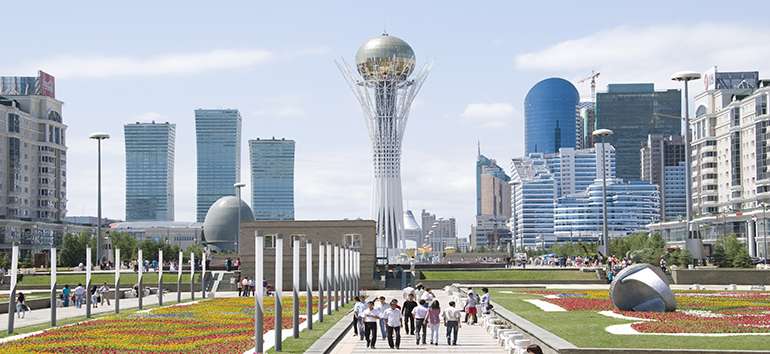Kazakhstan climbed one place from last year’s position in the annual ranking of the Index of Economic Freedom, reported the Washington-based Heritage Foundation. In the global ranking, the Central Asia’s largest economy is 68th out of 178, while in the Asia-Pacific region Kazakhstan is in 12th place.
The current status of Kazakhstan was evaluated as a country with a moderately free economy. Among major achievements named were trade freedom and management of public finance.
According to the authors of the study, the Kazakh government promised large-scale privatisation reforms in the coming years, however, the implementation progress of these reforms is not obvious yet. The country’s significant problems remain the need for economy diversification and the reduction of its dependence on exports. Moreover, the study highlighted four further problem zones of the Kazakh economy: the rule of law, limited government, regulatory efficiency and open markets.
Concerning the rule of law, the study marks a high level of corruption at all levels of government, as well as throughout the judicial system. More successful government is needed to improve the pubic dept, which now composes about 15 percent of GDP. This is especially vital in the current situation when large oil revenues can’t keep the budget balanced any longer.
According to the report, Kazakhstan also has burdensome licensing requirements for running a business, as well as erratic enforcement of the labour code. Despite the fact that Kazakhstan became the 162nd member of the World Trade Organisation in 2015, the matter of open markets remains unsolved. Local content requirements and sectoral barriers impede foreign investment and the number of non-performing loans in three largest banks remains high.
At 68th, this year Kazakhstan is ranked between Thailand and the State of Samoa. The country has left behind such countries as France (75th), Saudi Arabia (78th), Italy (86th), Brazil (122nd), China (144th), Russia (153th), Belarus (157th) and Ukraine (162nd).
The ranking’s leaders remain the same as in the previous year – Hong Kong, Singapore and New Zealand. The top ten of world free economies also included Australia, Switzerland, Canada, Chile, Ireland, Estonia and Great Britain.
The Index of Economic Freedom is calculated on the basis of ten factors ranked on a numeric scale from zero to 100. The principles of economic freedom include property rights, freedom from corruption, fiscal freedom, control of government spending, business freedom, labour freedom, monetary freedom, trade freedom, investment freedom and financial freedom. Kazakhstan has participated in the ranking since 1997.
The Index of Economic Freedom is the annual measure of economic freedom around the world. It is published jointly by The Heritage Foundation and The Wall Street Journal. In 2014, the ranking marked its 20th anniversary of existence.
According to Ryan Olson, a research assistant in the Centre for International Trade and Economics at The Heritage Foundation, the Index has the potential to be a vital tool for a large constituency, from investors to students to policymakers and beyond. With the help of this tool, individuals can improve their businesses, advocate good public policies and help build a society where freedom and prosperity flourish.

